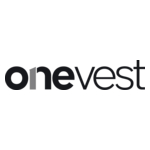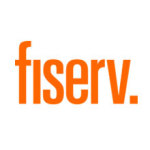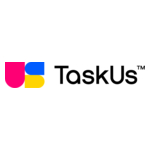Executive Profile: One on One with Mark Putman, First Data
 As a startup veteran with five companies under his belt, Mark Putman never foresaw his future as an executive for a large company. Today, he oversees the prepaid business at First Data Corp., one of the world’s largest payments processors, as senior vice president of prepaid solutions.
As a startup veteran with five companies under his belt, Mark Putman never foresaw his future as an executive for a large company. Today, he oversees the prepaid business at First Data Corp., one of the world’s largest payments processors, as senior vice president of prepaid solutions.
Putman admits his transition to the corporate world was a bit of a challenge. That all changed quickly when Frank Bisignano became First Data’s CEO last April. “He instantaneously manifested an environment with the freedom to invent new solutions. Essentially, we’re running in startup mode at First Data these days,” says Putman.
“Not only do I have the opportunity to nurture new products and applications, but it comes with the resources needed to support it. The challenges I experienced when I was leading startups, like raising capital to execute on an idea, are no longer issues. So, that streamlines our go-to-market time, which is a big advantage,” he explains.
The Advent of Open-Loop
Putman was a founder of Money Network, a company that launched in the early 2000s to provide electronic payroll for unbanked and underbanked employees through large employers. “Initially, we were affiliated with Concord EFS, a processor that merged with First Data in 2004. First Data acquired full ownership of Money Network in 2008, where it operates today as a division within the company. I joined First Data at that time to lead the development of its open-loop prepaid business, including Money Network,” explains Putman.
“The acquisition of Money Network supported First Data’s strategic plan to scale open-loop prepaid processing. Since then, our products have expanded beyond payroll to include campus cards, transit, GPR, health care FSAs and virtual payments,” he adds.
One recent enhancement Putman and his team launched is the new Money Network mobile app. “It has been massively successful. In less than six months, we acquired more than 500,000 users. It has been very effective in engaging cardholders to manage their financial lives,” notes Putman.
| IN HIS OWN WORDSIf I’m not in the office or traveling on business, I’m …
Spending time with my family. We love the mountains. I’m an avid snowboarder. I was fortunate to be in Sochi during the Winter Olympics’ snowboarding competition. What amazed me the most is the insane steepness of the slopeside course. Television coverage doesn’t begin to portray the scale. It was a big treat to be there and totally worth the 50-hour round-trip. What is the biggest challenge for the prepaid card industry today? Our image has been an issue due to perceptions about fees and fair practices. Through education assisted by the NBPCA, we are teaching people how prepaid cards help the unbanked population avoid high check cashing and bill payment expenses. As a result, we are making headway and uniting as an industry. What do you think of all the mobile payment startups? What is your prediction where the category will end up? The vast majority of startups will have trouble succeeding. Right now, we are in the first wave of ideation. It’s a very complicated model because of the POS integration that’s required. Some companies will go bust, some will be gobbled up—we could see a good bit of consolidation. What did you do professionally prior to founding Money Network? I founded a company called Access Technologies which was a leading provider of network hardware, software and design. It had revenues in excess of $100 million during the dot-com boom.
|
When it comes to growth, Putman predicts there’s still significant opportunity for payroll cards. “With 50 to 70 million underbanked Americans, we’ve only just scratched the surface of the full potential with the estimated 5 million cardholders the industry serves now,” he says.
“To aid that growth, we’re focused on what companies need to bolster payroll options for their employees. One of the most critical factors has been compliance, and so we built a platform that is and will remain fully aligned with requirements in all 50 states,” Putman explains.
What keeps Putman fired up about the prepaid business is the value of delivering ethical solutions to underbanked consumers. “We’re aiming to meet the unique financial needs of this marketplace at the lowest fee structure in the industry. Furthermore, I want to provide an aspirational product that cardholders are proud to use,” he says.
Closed- and Open-Loop Come Together
Atlanta-based First Data has its prepaid roots in closed-loop gift card processing, starting in 1995 with Blockbuster. Fast forward to 2014 and First Data has built up a portfolio of closed-loop clients that includes more than 300 of the world’s largest retail brands and thousands of smaller merchants.
Putman, who began at the helm of open-loop, brought the two worlds together two years ago when he assumed oversight of First Data’s closed-loop division. He sees enormous synergy between the two platforms and the internal teams often collaborate.
“By bringing open-loop and closed-loop together, First Data saw it as an opportunity to leverage unique assets that we naturally possess as a result of connectivity with 6.2 million merchants and 4,000 financial institutions. I’m constantly telling my team we need to connect the dots,” Putman explains.
“For example, we’re integrating closed-loop functionality with our payroll and GPR products to enable promotions and offers. We’ll be able to deliver rewards for open-loop spending using closed-loop gift card codes. Our goal is to strengthen POS open-loop redemption and to extend card life by offering more value to cardholders,” says Putman.
When it comes to clients, Putman’s philosophy is they must remain close business partners. He stays on the road constantly so he can visit them often and understand their priorities. “The current hot buttons with retailers have to do with using analytics to know the customers behind the products, converting gift cards to marketing tools and driving loyalty with stored value as the mechanism,” he explains.
Putman believes that closed-loop growth primarily will be driven through virtualization and mobilization. “We are seeing strong sales and load growth when prepaid cards are tied to mobile applications. Furthermore, virtual options will change the distribution model at places like gift card malls. Plus, it empowers smaller and midsize retailers that are missing from that space now,” he says.
Trendsetter
One of the tools Putman uses to gauge change is First Data’s SpendTrend report, a monthly analysis of consumer spending by payment type, including closed-loop redemption, across 4 million merchants in comparison to the same period for the prior year. Overall prepaid performance for 2013 was strong. The category outperformed other payment options nearly every month of the year and double-digit increases occurred in three out of the 12 months.
“Several of our retailers have developed mobile apps to drive prepaid business,” Putman explains. “This is the most significant reason for the increase. Other credit can be given to card reloading where merchants are promoting automated or recurring reloads; and to the growing use of stored value functionality to support loyalty programs.
“Up until now, what has brought me enormous personal satisfaction is to have delivered prepaid function that others in the industry said would never happen. What excites me about the future is the rapidly changing environment that gives us the chance to use our innate assets combined with creativity to do things that others can’t because of our unique infrastructure. Mobile handsets and virtualization are essential to driving greater scale and success. All we need to remember is to keep it customer-centric and easy to use.”










































